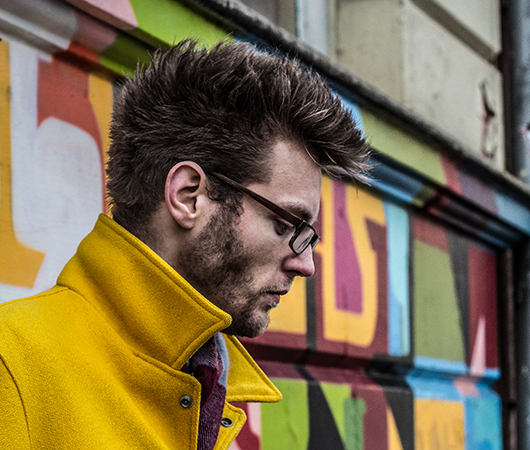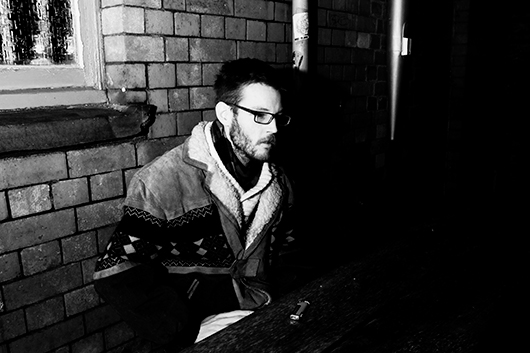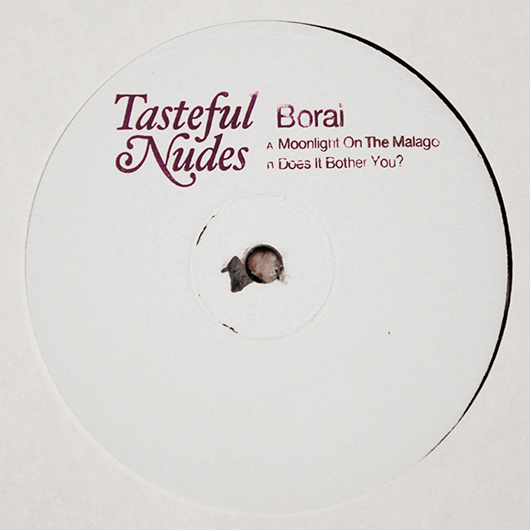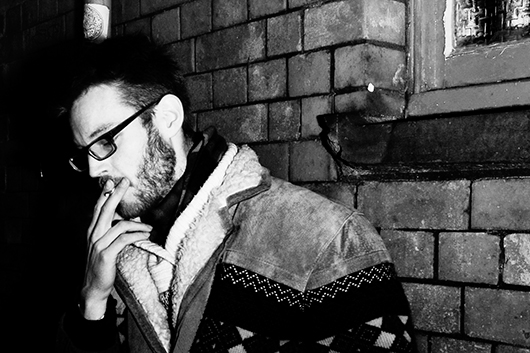Bubblin’ Up: Borai
There’s certainly something to be said for learning one’s craft. While plenty of producers are […]

Bubblin’ Up: Borai
There’s certainly something to be said for learning one’s craft. While plenty of producers are […]

There’s certainly something to be said for learning one’s craft. While plenty of producers are happy to grow up in public, sharing every half-finished track from day one and allowing their musical style and technical prowess to develop out in the open, there are undoubtedly benefits to waiting in the background and biding one’s time. This is a philosophy to which Bristol-based producer Boris English (a.k.a Borai) seems to subscribe.
English has been involved, in one way or another, with Bristol’s dance music scene for over a decade, but it’s only within the past couple of years—through collaborations with fellow Bristolian October and his recent solo debut, “Moonlight on the Malago,” on Chicago’s Tasteful Nudes—that he has brought Borai into the open. If Borai has been slow out of the starting blocks, it’s certainly not through a lack of passion; in person, English is a man who exudes enthusiasm, speaking excitedly about everything from his formative years in Bristol to his long fascination with recording technology and his ambitions as a DJ.
He’s certainly put in plenty of time learning his craft too. English has been experimenting with studio gear since studying music technology at college around the turn of the millenium. “In my second year, the college moved to a new site and they spent the entire arts budget on these new digital studios,” he recalls. “I had a basic set up at home at the time—I’d managed to wangle an Atari and a cracked copy of Cubase and I’d bought a Yamaha sampler through a grant I got at college and some birthday money—but when we got these new studios, I suddenly had access to these Mackie mixing desks and Logic and Macs and all these compressors… I found out I could stay there until nine every night; it was brilliant.”
This drive to learn new skills appears to have stuck with him. English—who’s now in the tail end of his 20s—is currently employed as an apprentice at Bristol’s Dub Studio, learning the art of cutting dubplates. “I’ve been working with Henry [Bainbridge, the owner,] for about three years now,” he explains. “At the moment, I’m just supporting things… my role is effectively customer service. We’re building a second, smaller studio though; somewhere for little projects, easier stuff that I can take on. Realistically, the next step for me is to actually cut records. I’ve been cutting the occasional one or two but—because it’s very hands-on—you need experience; it’s something you need to keep doing repetitively.”

Yet listening to the subtle, well-informed blend of house, garage, and old-school influences presented on Borai’s recent double-header, it’s plain to see that English’s commitment to the intricacies of dance music runs deeper than mere technical proficiency. As a listener, enthusiast, and intermittent DJ, he’s come up through several generations of Bristol’s electronic legacy—his story goes back beyond the current house resurgence, through dubstep, breakbeat, and the drum & bass explosion of the late ’90s.
“A schoolmate introduced me to the sounds of jungle,” he recalls. “I did, and still do, have wide-ranging tastes and I was listening to other things too, but in terms of dance music, it went: early Kraftwerk records from my parents collection, then into tapes that I got off my school friends where I didn’t really know what any of it was—genres like Goa and acid techno, and bits of really banging hardcore—and then into jungle.”
This exposure to jungle, coupled with disruption to his social life (“by going to college, I lost most of my school friends”) led the teenage English to befriend Julian Smith (a.k.a October). The pair first met over a decade ago, while Smith was working at Bristol record store Breakbeat Culture—a former hub for the city’s drum & bass scene.

“I was really interested in drum & bass and dance music, but I didn’t have anywhere to go out and I didn’t want to go out on my own,” English explains. “I was taking part as much as I could by spending a lot of time hanging around the record shops, always asking to have records played for me, as they didn’t have a listening deck… I remember around that time I found out that Breakbeat Culture had been taken over, so I went down and got chatting and that was where I first met October, probably when I was about 17 or 18. It was his friends who had taken the place over and he was working there, so we just ended up chatting and talking production.”
Through Smith, he became closer to Bristol’s dance music community. “[That group was] putting a night on called Timecode, so I started to do warm-up sets there. All this time, I’d been buying records, going into second-hand shops and picking up everything from old house to drum & bass. There was still an aspiration to be a drum & bass producer, but I was open to everything. Oddly, I got all my first gigs through not playing [drum & bass] and being a warm-up DJ. So my collection built out of a lot of stuff focused around playing warm-up and being able to play the second room.”
English recalls how, through oversaturation, drum & bass gave way to breakbeat, which eventually fell out of fashion with the city’s dancefloor, making room for dubstep. He experienced the scene early, sharing lifts with the likes of Pinch and Ginz in order to visit FWD>> nights in London. But as the scene took over Bristol, and then began its inevitable decline through the later half of the ’00s, both English and Smith found themselves drawn more than ever towards classic house, techno, and NY garage.

“I spent that whole time not thinking my stuff was good enough, and repeatedly switching genres and starting again,” English explains, recalling a drop in confidence that led him to remain in the background. “I was sending tunes to people occasionally, but not really participating. More just writing stuff for myself and getting the odd gig here and there when I could.”
The jolt needed to get Borai off the ground came, once again, from Smith, who had already chalked up critically acclaimed October releases on labels like Caravan and Vertical Sounds. “I was living with my brother, but the landlord decided he was going to turn our place into two flats, so he kicked us out,” English recalls. “I ended up living at October’s place for quite a while and that time is when we wrote most of our stuff. We were spending so much time in the studio together; I brought all my kit over and we combined gear. Spending a lot of time hanging out with October was a big encouragement; the fact that he was happy to invest time in these tracks after he’d worked so tirelessly on his own career… it was the confidence boost I needed.”
It may have taken a few years for English’s production ambitions to come to fruition, but the long gestation period certainly hasn’t been time wasted. The handful of collaborations that October and Borai released throughout 2011 and 2012 were each vibrant works of classically rooted house, efforts that were clearly the work of a pair of musicians who shared a deep musical history. Meanwhile, English’s solo debut is the sort of mature, self-assured package that one would expect to come from the seasoned hand of a producer decades into their career.
It seems that English still has plenty of ambition left in him though; since moving out of October’s flat, English has beefed up his own studio (“these latest tracks are the first two I finished in my new place”) and shows no sign of losing his drive to develop as a producer. He talks enthusiastically about an ambitious future as a DJ too—inspired by his ongoing training at Dub Studio. “I saw Matrix—Optical’s brother—at [Bristol club] Creation years ago, and he turned up with a 10″ record box,” he explains. “That means the contents were purely dubplates. You can get 12″ dubplates too, sure, but if you’re playing 10″s, then it’s definitely all dubplates; all exclusives, or all originals. I like the idea of that, it’s stayed with me.”

